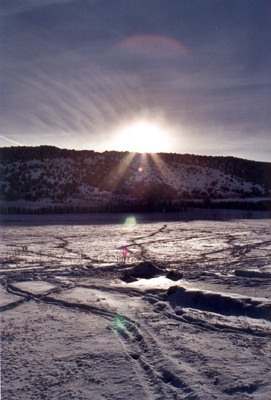All Nonfiction
- Bullying
- Books
- Academic
- Author Interviews
- Celebrity interviews
- College Articles
- College Essays
- Educator of the Year
- Heroes
- Interviews
- Memoir
- Personal Experience
- Sports
- Travel & Culture
All Opinions
- Bullying
- Current Events / Politics
- Discrimination
- Drugs / Alcohol / Smoking
- Entertainment / Celebrities
- Environment
- Love / Relationships
- Movies / Music / TV
- Pop Culture / Trends
- School / College
- Social Issues / Civics
- Spirituality / Religion
- Sports / Hobbies
All Hot Topics
- Bullying
- Community Service
- Environment
- Health
- Letters to the Editor
- Pride & Prejudice
- What Matters
- Back
Summer Guide
- Program Links
- Program Reviews
- Back
College Guide
- College Links
- College Reviews
- College Essays
- College Articles
- Back
Are We Nearing the End?
“We are sawing of the branch that we are sitting on.” This was quoted from Paul Ehrlich from the Bing Professor of Population Studies. Paul studies the sixth mass extinction. This can become a real problem for people who want to live on this planet. There are many ways that we can help slow down the extinction rate, but sadly there is no way to reverse it. We can do something but we have to act now.
Studies done by a group of scientist from Stanford, Berkeley, Princeton, University of Florida, and Universidad Autónoma de México claim that species are going extinct faster than any time since the time going dinosaurs extinct (Sixth Mass Extinction Is Happening Now | EarthSky.org). Introducing invasive species, deforestation/land clearing, and carbon dioxide emissions are three large factors that are impacting the sixth mass extinction. People are using deforestation to make room for farming, housing, and simply for money. This is a large part of some economies but it can easily be cut back in small amounts. Land clearing is also a contributor to our predicament that we are in currently (Sixth Mass Extinction Is Happening Now | EarthSky.org). Land clearing creates salty soil and makes the land not plantable, which also means animals can’t live there because there’s no food for them to eat. This can be changed be not over only one night.
We have became the top predator by land and by sea (Jeremy Hance). This extinction is most likely going to occur if we don’t do something to stop it. In the past extinctions, they have occurred due to planetary catastrophes. Also in the past it has take 10 - 30 million years to recover from these catastrophes according to Jeremy Hance. Jeremy Hance goes on to say that humanity has used 25-40 percent of the Earth's net primary production, for our purposes. The net production is the energy released from plants during photosynthesis. According to Anthony D. Barnosky If we follow the trajectory of global warming, by 2100 we will be the hottest we’ve been in 14 million years. Animal can adapt, but in the past it has take two million years for them to adapt to climate change. They don’t have two million years this time though. Anthony says that climate change is occurring ten times faster than in the past. We can’t give up, because this is not something that is going to fix itself.
Are we truly in the Sixth Mass Extinction? If you want to debate, think about this, do you want to wait and find out? If we wait, up to ¾ of all the species could go extinct (Will Humans Survive the Sixth Great Extinction?). One definite fact is that the extinction rate is HIGH. Could we be the cause of our own extinction? If we keep traveling down this road we very easily could be the cause of our own extinction. Humans do adapt quickly but if we do adapt, would we want to live on this Earth?
The Sixth Mass Extinction is as real as you and me. This catastrophe can not be fixed overnight; so we can not give up. We have to reduce deforestation/land clearing, carbon dioxide emissions, and many other environmental little things can help such as recycling more. We are the asteroid to the dinosaurs and we are the only ones that can change the route from hitting Earth.
Works Cited
Barnosky, Anthony D. "10 Ways You Can Help Stop the Sixth Mass Extinction." The Huffington Post. TheHuffingtonPost.com. Web. 03 May 2016.
Barnosky, Anthony D. "Preventing the Sixth Mass Extinction Requires Dealing With Climate Change." The Huffington Post. TheHuffingtonPost.com. Web. 03 May 2016.
Hance, Jeremy. "How Humans Are Driving the Sixth Mass Extinction." The Guardian. Guardian News and Media, 20 Oct. 2015. Web. 03 May 2016.
"Sixth Mass Extinction Is Happening Now | EarthSky.org." EarthSky. Web. 03 May 2016.
"Will Humans Survive the Sixth Great Extinction?" National Geographic. National Geographic Society. Web. 03 May 2016.

Similar Articles
JOIN THE DISCUSSION
This article has 0 comments.

This was a school project to bring up awarness about what is happening in our world right now and what we can do to help.